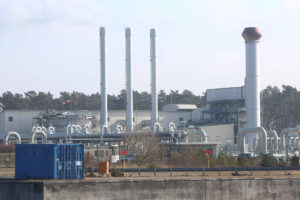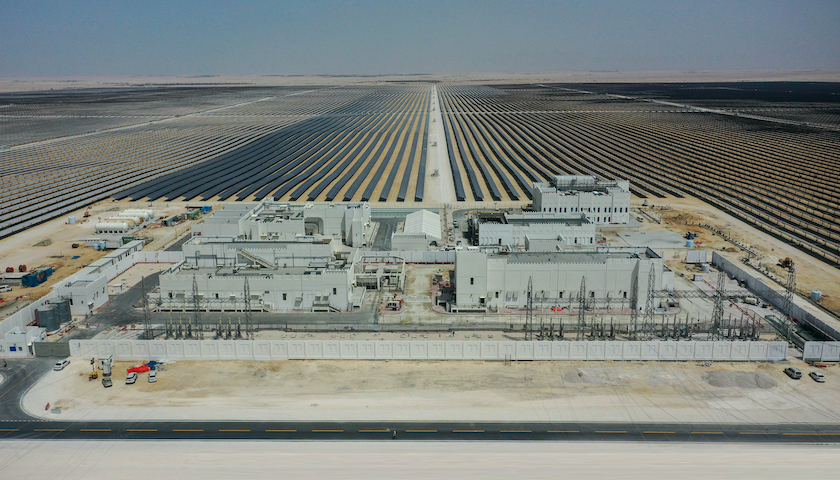In early August, Europe experienced a new wave of heatwaves, exacerbating the already pressing issue of energy shortages across the continent. To address this challenge, numerous European countries have introduced a series of energy-saving measures aimed at reducing consumption and ensuring stability during the ongoing crisis.

Energy-Saving Initiatives Take Center Stage
French President Emmanuel Macron recently announced that government departments would develop comprehensive “energy conservation plans” this summer to tackle power shortages. Agnès Pannier-Runacher, France’s Minister of Energy Transition, outlined several proactive measures, including requiring stores to keep air-conditioning doors closed, encouraging retailers to reduce lighting intensity, halting nighttime ventilation, and adhering to strict indoor temperature regulations. Additionally, the French government has banned the use of illuminated billboards in public spaces (excluding stations and airports) between 1:00 am and 6:00 am. Pannier-Runacher emphasized France’s goal of reducing energy consumption by 10% compared to 2019 levels within the next two years.
Germany has also taken significant steps, with Berlin turning off nighttime lighting for certain buildings, Hannover cutting off hot water supplies in public buildings, and Augsburg shutting down public fountains. In Spain, businesses, restaurants, and museums must comply with strict indoor temperature regulations: air conditioning cannot be set below 27°C in summer or above 19°C in winter, and shop window lighting must be turned off after 10:00 pm. Violators face fines starting at €60,000. Similar energy-saving measures have been implemented in Greece, Belgium, the Netherlands, and Denmark.
Addressing Rising Energy Consumption
French newspaper Le Figaro analyzed that extreme weather and the Russia-Ukraine conflict have driven up electricity prices across Europe, increasing the risk of power shortages this winter. In France, weeks of dry, high-temperature weather have raised river temperatures, limiting the cooling capacity of nuclear power plants. Compounded by maintenance work at several EDF nuclear facilities, power generation has dropped significantly compared to previous years, causing wholesale electricity prices for the fourth quarter to soar to ten times their normal levels.
In response, France’s three major energy companies—TotalEnergies, EDF, and Engie Group—have urged the public to reduce energy consumption to prevent shortages or price spikes this winter. Major supermarket chains, including Carrefour and Auchan, have pledged to cut electricity and natural gas usage starting October 15. Measures include turning off illuminated signs after closing, halving lighting in sales areas during restocking, and adjusting indoor temperatures. Under new regulations, French businesses must comply with the “closed air-conditioning door” rule or face fines of up to €750.
Many Europeans have also embraced energy-saving tips from power companies and online sources, such as minimizing the use of high-energy appliances, utilizing residual heat from stoves and ovens, avoiding standby power consumption, and maximizing solar energy usage.
A Shifting Energy Landscape
With Russian gas supplies drastically reduced, countries like Germany, Austria, Greece, and the Netherlands have announced plans to reopen coal-fired power plants or support coal energy production. Tim McPhee, a spokesperson for the European Commission on climate action and energy, acknowledged that the changing energy landscape has prompted EU member states to adjust their energy structures and plans, including the revival of some coal capacity.
To address the crisis, EU member states have agreed to reduce natural gas demand by 15% from the average of the past five years between August 1, 2022, and March 31, 2023. The European Council emphasized that priority should be given to ensuring gas supplies for households, essential social services, critical institutions, healthcare facilities, and defense infrastructure.
Member states are encouraged to adopt various measures, such as incentivizing power companies to switch energy sources, raising public awareness of energy conservation, adjusting heating and cooling standards, or implementing market-based solutions to reduce gas consumption. Kadri Simson, European Commissioner for Energy, stressed that proactive reduction of gas demand can prevent rushed or unilateral decisions in the future, helping achieve energy-saving goals efficiently while minimizing the impact on individuals and businesses.
Conclusion
As Europe faces unprecedented energy challenges, governments, businesses, and citizens are taking collective action to mitigate shortages and stabilize supplies. By prioritizing energy conservation and diversifying energy sources, European nations aim to navigate the current crisis while laying the groundwork for a more resilient and sustainable energy future.



